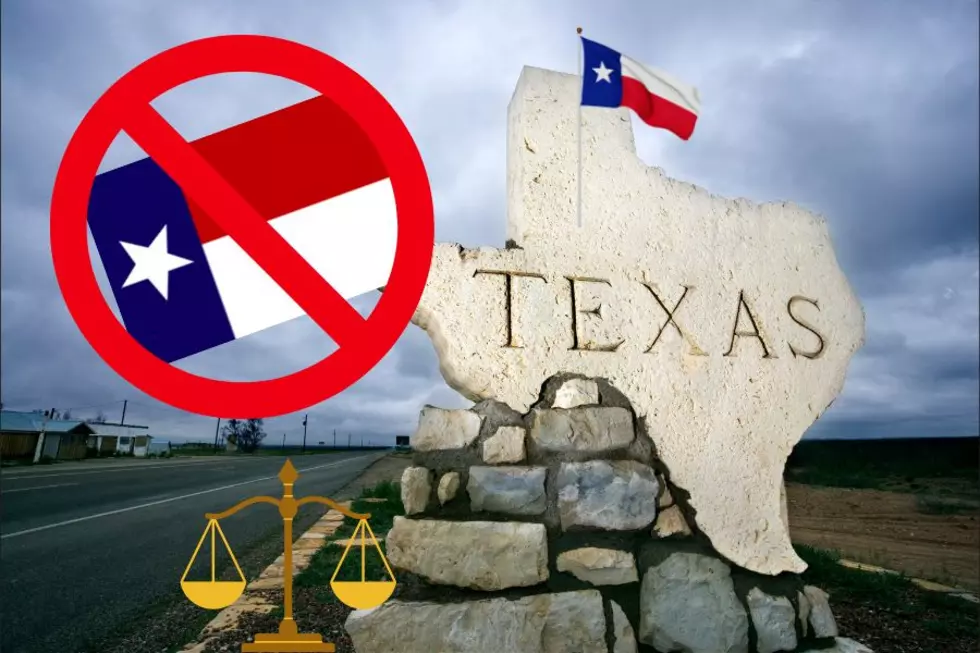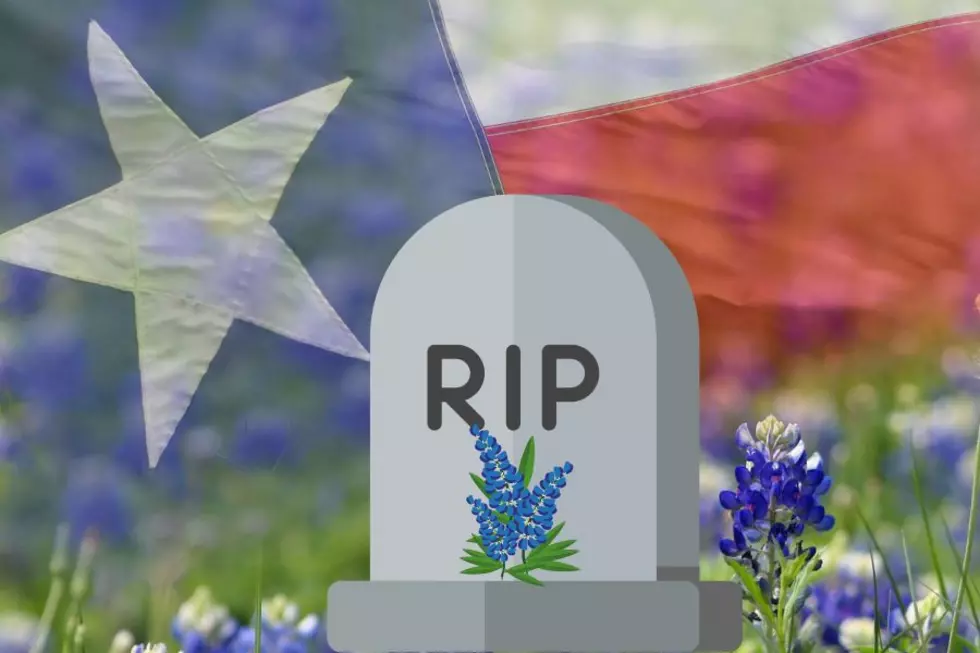
Chad’s Morning Brief: Texas Taking a Look at Juvenile Offenders, Most Americans Support Proof of Citizenship to Vote, and Other Top Stories
Here is your Morning Brief for the morning of March 26, 2014. Give me your feedback below and tune in to The Chad Hasty Show for these and many more topics from 8:30 to 11am. Remember, you can listen online at KFYO.com or on your iPhone/Android with the radioPup App.
Texas Juvenile Justice
Lawmakers in Texas are considering no longer treating 17-year-olds as adults in criminal cases according to the Austin American-Statesman. While a committee examined juvenile justice, Houston Democratic State Senator John Whitmire slammed the Texas Juvenile Justice Department.
Houston Democrat John Whitmire, chairman of the Texas Senate Criminal Justice Committee, said the state agency is spending $129,000 a year per detainee, while having a 77 percent re-arrest rate and a 48 percent re-incarceration rate. Texas lawmakers have moved in recent years to shut down juvenile detention facilities and shift young offenders into community rehabilitation programs.
But Whitmire said 1,050 juveniles remain in the state system, which he complained also fails to sufficiently segregate violent from non-violent offenders, or 14-year-olds from 17-year-olds.
"Juvenile judges have told me they've given up on this department," Whitmire said. "They feel like they get better services for the youth in the communities they are coming from."
The outgoing executive director of the agency, Mike Griffiths, said employees are improving the system but that they handle the toughest juvenile offenders under difficult circumstances.
"The majority of those youth have multiple convictions, most at the felony level, before they hit the system," he said. "Our agency is not broken, our staff is not broken. We are in antiquated facilities ... we shouldn't be in."
Griffiths spent only 18 months leading the agency, formerly known as the Texas Youth Commission. The state's juvenile detention system has been plagued by scandals and problems, and lawmakers have tried to follow national trends of keeping young offenders out of detention facilities and with their families.
Whitmire said the probation arm of the system appeared to be working well.
Earlier, the House Criminal Jurisprudence Committee heard testimony on raising the age at which a criminal suspect is considered an adult. Texas is among only 10 states that treat people younger than 18 as adults, and has treated 17-year-olds as adults since 1918.
Michele Dietch, a professor at the LBJ School for Public Affairs, said research has proven teenage brains are not fully developed and young offenders need special services not available in adult prisons.
"Teenagers struggle with poor decision-making and poor impulse control," she told the House Criminal Jurisprudence Committee. "Youths' characters and personalities are still developing."
She said other states that still treat juveniles as adults are changing their laws, and Texas is an outlier nationally and internationally. She noted that juveniles are 36 times more likely to commit suicide in adult prisons than juvenile justice facilities.
Judge Laura Parker, who oversees a juvenile court in San Antonio, said 80 percent of the cases she hears are misdemeanors. She supports changing the law.
"You have low-level offenders ending up in the adult system," she said. "Adult probation is very, very difficult. ... The adult probation system doesn't hold their hand in the same way, it doesn't include the family."
No one testified in favor of maintaining the current law, but victims' rights groups worry that teenagers who commit serious crimes might not face serious punishment.
Riley Shaw, an assistant district attorney who handles juvenile cases in Tarrant County, said he supports raising the age but said it would require an overhaul of all criminal justice laws, retraining probation officers, and more money for rehabilitation and probation programs.
"The problems I see are on the implementation side," he said. "You need to take your time if you're going to make this kind of change."
The Texas Senate Criminal Justice Committee will meet in the afternoon to study how the juvenile detention system is operating. Lawmakers recently moved to shut down most of the state's juvenile detention centers, but the state is still struggling with how to deal with those suffering from severe behavioral problems.
For many crimes, I understand the desire for rehab over jail for teenagers. However I do worry that very serious crimes will not be addressed the way they should. If a 17-year-old gets busted for pot, they don't need to go to adult prison. However, if that same person were to murder or commit a home invasion, I think that is a different story.
Proof of Citizenship
Should you have to have proof of citizenship when registering to vote? Democrats may hate the answer to this, but most Americans have no problem with it at all according to a new Rasmussen survey.
A new Rasmussen Reports national telephone survey finds that 78% of Likely U.S. Voters believe everyone should be required to prove his or her citizenship before being allowed to register to vote. That’s up from 71% a year ago. Just 19% oppose that requirement. (To see survey question wording, click here.)
Twenty-nine percent (29%) believe laws that require proof of citizenship before allowing voter registration discriminate against such voters. But more than twice as many (61%) say such laws do not discriminate, up three points from 58% who felt that way in March of last year. Ten percent (10%) are undecided.
Opponents of proof-of-citizenship laws claim they are intended to keep eligible voters from voting, while supporters say instead that they are intended to keep ineligible voters from casting votes. Thirty-four percent (34%) think it is more common that people are prevented from voting who should be allowed to vote. Half (50%) of voters disagree and think that more often people are allowed to vote who are not eligible to vote. Seventeen percent (17%) are not sure.
This marks a six-point increase from last year in the number of voters who think it is more common for people to be allowed to vote who are not eligible. It’s also the highest level of doubt about the voting process in surveys since January 2008.
The federal judge’s ruling last week upheld laws enacted in Arizona and Kansas because federal voter registration forms do not include a proof of citizenship requirement. Thirty-eight percent (38%) of voters believe state governments should set the requirements for voter registration, but 51% think that is a responsibility of the federal government. Eleven percent (11%) are not sure. This is unchanged from earlier surveying.
(Want a free daily e-mail update ? If it's in the news, it's in our polls). Rasmussen Reports updates are also available on Twitter or Facebook.
The survey of 1,000 Likely Voters was conducted on March 20-21, 2013 by Rasmussen Reports. The margin of sampling error is +/- 3 percentage points with a 95% level of confidence. Field work for all Rasmussen Reports surveys is conducted by Pulse Opinion Research, LLC. Seemethodology.
In surveys since June 2006, voters have been just as adamant in their support of laws that require voters to prove their identity at the polls before being allowed to vote. Fifty-nine percent (59%) do not believe photo ID laws discriminate against some voters.
Most voters across the partisan spectrum support laws that require proof of citizenship before being allowed to register to vote, although Democrats are less enthusiastic about those laws than Republicans and unaffiliated voters are. Seventy-seven percent (77%) of GOP voters and 67% of unaffiliateds believe such laws do not discriminate against some voters, but Democrats are evenly divided on that question.
But then 54% of voters in President Obama’s party think it is more common for legitimate voters to be denied the right to vote, while 74% of Republicans and 51% of unaffiliated voters think that it’s more common for non-voters to vote.
Ninety-five percent (95%) of voters who think illegal voting is more common support proof-of-citizenship laws. Those who think it is more likely that eligible voters are denied their right to vote are evenly divided over such laws.
Sixty-nine percent (69%) of all voters say they have been following news reports about voter registration at least somewhat closely, with 34% who are following Very Closely. Voters 40 and over are much more interested in the topic than those who are younger.
Only 17% think it is too hard to vote in the United States. Twenty-seven percent (27%) think it's too easy to vote in America today.
Forty-one percent (41%) of all voters think American elections are fair to voters, well below the all-time high of 57% who felt that way in October 2012.
Americans strongly value being a citizen of the United States, but one-in-four thinks it's too easy these days for someone to become a citizen.
By the way, you can count me in with the 27% that believe it's too easy to vote. We should have test before voting. It doesn't have to be hard, just a basic civics test will do.
Other Top Stories:
These and many more topics coming up on today’s edition of The Chad Hasty Show. Tune in mornings 8:30-11am on News/Talk 790 KFYO, streaming online at kfyo.com, and now on your iPhone and Android device with the radioPup App. All guest interviews can be heard online in our podcast section after the show at kfyo.com.
More From News/Talk 95.1 & 790 KFYO









